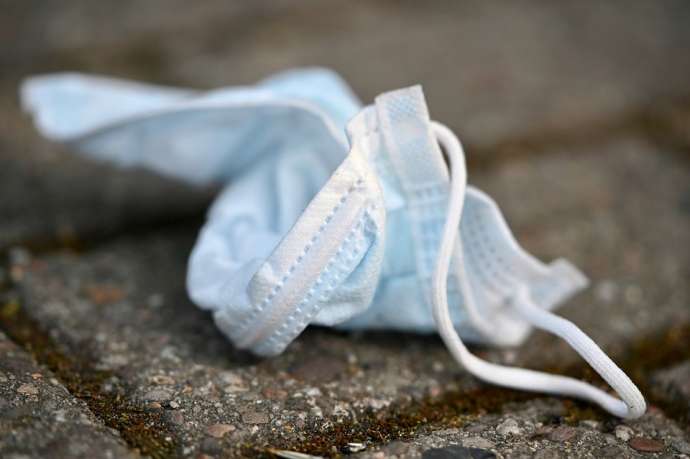STA, 8 November 2021 - A number of new Covid restrictions came into effect today to help contain the unrelenting outbreak of infections. A ban on gatherings and a curfew on bars and restaurants were reimposed as night clubs are being shut while the Covid pass mandate is being expanded to those aged 12 and older. Cloth masks are no longer deemed suitable.
In line with the decisions taken by the government in Friday and released in the Official Gazette on Saturday, the recovered-vaccinated-tested (PCT) rule, where required, is being extended to cover everyone over the age of 12, up from 15.
Along with the PCT certificate, the person will also need to show a valid ID document to prove their identity, a change introduced due to rampant fraud. For those who have not been fully vaccinated or reconvalescent, a rapid test is valid for 48 hours and PCR test for 72 hours.
Gatherings are temporarily banned, except for close family members and members of the same household. The exception to the rule is organised public indoor and outdoor events provided the participants meet the PCT rule and maintain a distance of at least 1.5 metres from each other.
Surgical or FFP2 face masks are mandatory inside all public indoor spaces and in outdoor public spaces when physical distance of at least 1.5 metre cannot be maintained. The masks are also mandatory inside vehicles except when carrying only same household members. Children under six are not required to wear masks.
Grocery stores and pharmacies or shops selling toiletries and beauty products or medical equipment, where the Covid certificate is not mandatory, have to allow at least 10 square metres per customer.
Bars, cafes and eateries can now only serve customers at tables between 5am and 10pm provided that they have a valid Covid pass. Night clubs are being shut down until further notice.
Public cultural events are only permitted in indoor public venues with fixed seats. Apart from having to meet the Covid pass mandate and carrying a surgical or FFP2 mask, the visitors are required to be seated one seat apart from each other. The same applies to sports events, which can be held outdoors though.
It is prohibited to serve or consume food or drinks at public cultural or sporting events.
The Covid pass mandate, masks and social distancing of at least 1.5 metres are also mandatory for religious gatherings.
Except for masks for youngest school children, changes do not affect education institutions for the time being. However, from 15 November self-testing will be mandatory three times a week for all pupils and students who are not vaccinated or reconvalescent. They will self-test at school and no longer at home.
The costs of rapid antigen tests and self-tests required at workplace or schools will be covered from the state budget. The price covered by the budget is set at EUR 7, VAT excluded, per rapid antigen test and EUR 2.5 per self-test.
Several pharmacies told the STA today that they were running out of stocks of self-test kits, attributing the increased demand to the announced mandatory self-testing by pupils and students.
They nevertheless said that they were looking to secure undisrupted supply of self-test kits and that stocks would be increased given the high demand as extra stocks would be ordered from suppliers.
Pharmacies also see an increased demand for surgical or FFP2 face masks as wearing of this type of mask is becoming mandatory, although they say that stocks had been expanded and there are no shortages in the market.
State administration employees in workstations will be ordered to work from home where that is possible and the same is being recommended for public employees at public agencies, institutions and corporations and local communities, while the government is also urging other employers to organise work from home.
The latest restrictions are being imposed as the 7-day rolling average of daily cases has increased to almost 2,860 and the 14-day incidence per 100,000 residents has risen to over 1,700 with almost 800 Covid patients treated in hospitals.
With hospital capacities expected to become stretched further, the Health Ministry has ordered a mobilisation of the whole health system, including public and private providers, whose activities will be coordinated on a daily basis.






